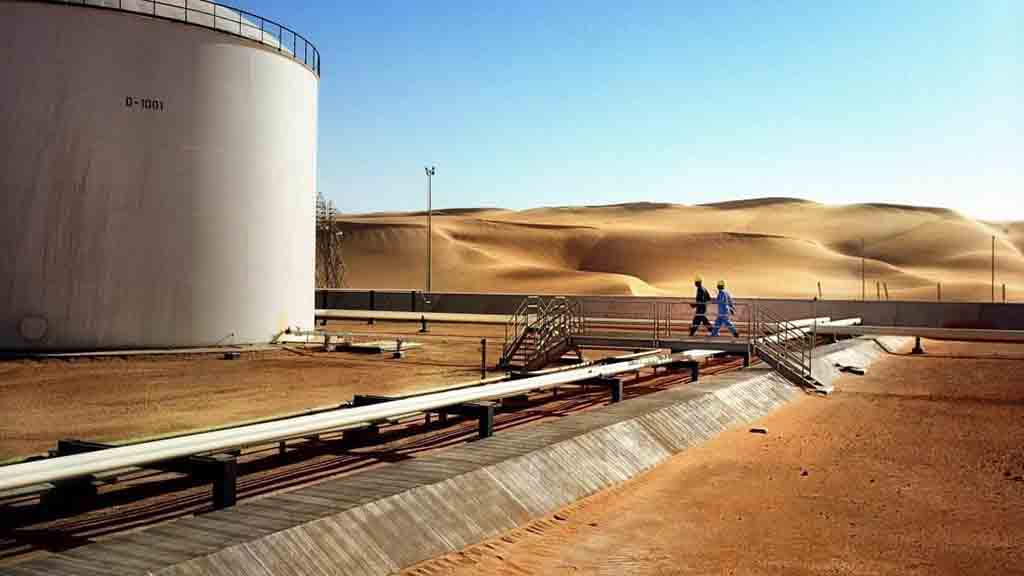TRIPOLI: Libya's National Oil Corporation announced Monday the closure of operations in major oil fields after staff in the key export terminal of Zueitina were blocked from working. "The National Oil Corporation is obliged to declare a state of force majeure on the oil port of Zueitina, including all fields and producing stations associated with this port and shipping facilities until further notice," NOC chief Mustafa Sanalla said in a statement.
Declaring force majeure is a legal move allowing parties to free themselves from contractual obligations when factors such as fighting or natural disasters make meeting them impossible. Libya is seeking to extricate itself from a decade of chaos and conflict that followed the toppling of Muammar Gaddafi in a 2011 NATO-backed uprising. "These interruptions were caused by the entry of a group of individuals into the port of Zueitina," the firm said in a statement, adding that the group "prevented workers" from continuing exports.
Zueitina is one of the four oil terminals in the so-called "Oil Crescent" region, and its closures will prevent Libya from exporting almost a quarter of its 1.2 million barrels per day of production. Sanalla added it was the "start of a painful wave of closures" in the North African nation at a time of an "oil and gas price boom". The NOC is one of the few institutions in the troubled country to have stayed in one piece. Oil revenues are vital to the economy, with Libya sitting on Africa's largest known reserves.
Libya has recently once again found itself with two rival governments after the eastern-based parliament in February appointed a new prime minister in a direct challenge to the UN-brokered government in the capital Tripoli, in the west. The latest in a long line of standoffs pits Prime Minister Abdulhamid Dbeibah's interim government in Tripoli against that of former interior minister Fathi Bashagha, who was chosen by parliament.
The groups blocking the oil port are seen as favoring the eastern camp, and are demanding "a fair distribution" of income and the transfer of power to Bashagha. Sanalla, the NOC's chief, repeated calls for the "neutrality" of the oil sector to be protected, "avoiding the political conflicts in the country".
Pumping of crude was stopped in the oil fields of Abuatufol, Al-Intisar, Anakhla and Nafura, all of which ship their oil through Zueitina, the firm added. NOC said that after the "forced closure" of the Al-Fil field on Saturday night, workers of several companies were "forced" into a shutdown of production at several sites. "On Saturday... the Al-Fil field was subjected to arbitrary closure attempts, due to the entry of a group of individuals and the prevention of the field's workers from continuing production," the NOC said on Facebook.
It added that the field was shut down on Sunday-marking the second closure in a matter of weeks-"making it impossible for the NOC to implement its contractual obligations". The firm said it "is obliged to declare a state of force majeure" and would no longer be able to provide crude to the Mellitah complex on the country's northwestern coast. Declaring force majeure is a legal move allowing parties to free themselves from contractual obligations when factors such as fighting or natural disasters make meeting them impossible. According to Libya's state news agency, the closure comes after a group of individuals declared that they were halting production "until a government appointed by parliament takes office in the capital".
Libya has recently once again found itself with two rival governments after the eastern-based parliament in February appointed a new prime minister in a direct challenge to the UN-brokered government in Tripoli. The move underlines the extent of divisions in the war-wracked country as observers fear a renewed descent into violence. Al-Fil, some 750 kilometers southwest of Tripoli, is jointly managed by the NOC and Italian energy giant ENI and produces around 70,000 barrels of oil per day. - AFP











